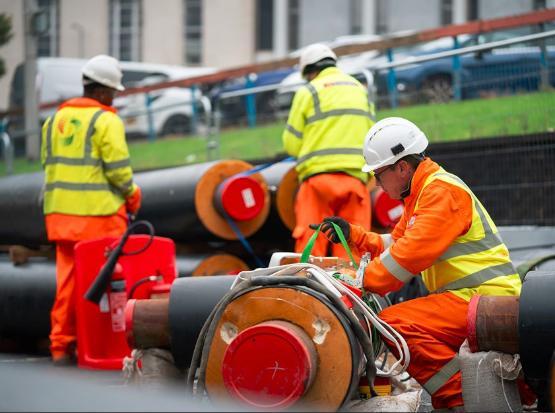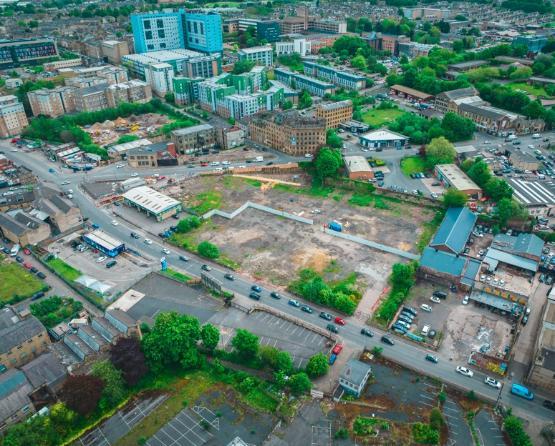City-wide heat network will save university tens of millions in replacing aging boilers
The University of Bradford will save ‘tens of millions’ of pounds in replacing its aging heating boilers after signing up to a new city-wide heat network.

Bradford Energy Network (BEN) includes around six miles of super-insulated underground pipe and will supply heat to major buildings across Bradford, including Bradford College, Bradford Courts and some council buildings - the University will be the network’s biggest customer.
The University and 1Energy recently signed a 20-year deal to connect to the network, which will supply 11 buildings on campus.
In its business case, the University said the cost of replacing aging boilers in its main Richmond Building would cost around £10m. The estimated cost of moving to its own heat network was put at about £24m.

University Vice-Chancellor Professor Shirley Congdon said: “This is a watershed moment for our university. Our partnership with Bradford Energy Network represents a major turning point in our commitment to achieve Net Zero and meet the UN’s Sustainability Goals. It also shows our commitment to addressing environmental issues, not just in words but through action.
“In joining BEN, we also hope to stimulate investment and drive sustainable economic development across the city and region. The University of Bradford is an integral part of the city and this will help bring more stability to our long-term energy plans.”

BEN funding
1Energy, one of the UK's leading low-carbon city heat network developer, has secured £75m of investment and three anchor customers for its heat pump-powered network in Bradford. With the support of its key partners – the University of Bradford, Bradford College, and Bradford Courts – the Bradford Energy Network will enable the rapid decarbonisation of heating, the country’s biggest source of carbon emissions.
With 1Energy recently breaking ground on its energy centre, its novel approach combines £75m of private capital and public investment in Bradford, providing a blueprint to decarbonise cities and towns nationally. This total includes £20m of investment from the UK Government’s Green Heat Network Fund.

Andrew Wettern, CEO of 1Energy, said: “We cannot reach Net Zero without decarbonising heat. We are proud to be delivering a city-wide solution to this challenge for Bradford alongside the University of Bradford, Bradford College, and Bradford Courts.
“The Bradford Energy Network is a flagship project in the UK’s transition to low carbon heating. Crucially, it also provides a blueprint for national rollout, successfully demonstrating how to deploy institutional investment alongside Government funding, deliver savings for customers in the transition, and decarbonise existing and new buildings across a city through an exemplar low carbon heat network.
"The project is already delivering significant social value and wider benefits to the city – creating new jobs and skills, utilising the local supply-chain and creating a more favourable environment for inward investment into Bradford. Thanks to the support of our key partners, we are able to put Bradford right at the very forefront of decarbonised, healthier cities in the UK and to assist its regeneration and growth."

Background
In 2019, the UK Government set ambitious statutory targets for the country to achieve net zero carbon by 2050 – a policy position that will currently see the UK lead the world in the transition to low carbon energy sources.
A key part of the Government’s net zero carbon policy is the decarbonisation of heat. For businesses in Bradford and across the country who use gas to create heat, this will mean moving from the current reliance on gas boilers, to lower carbon or net-zero forms of heating over the coming years.
Bradford Energy Network is a planned Low-to-Zero Carbon (LZC) district heating network being developed for the city centre, allowing businesses and organisations which connect to the BEN to decarbonise their heating, along with delivering a number of other benefits for the city.
Bradford Energy Limited (BEL) has been established to construct and operate the Bradford Energy Network (BEN) – a district heat network that will deliver renewable heat from a central Energy Centre to the buildings in and around the centre of Bradford through large underground pipes.
